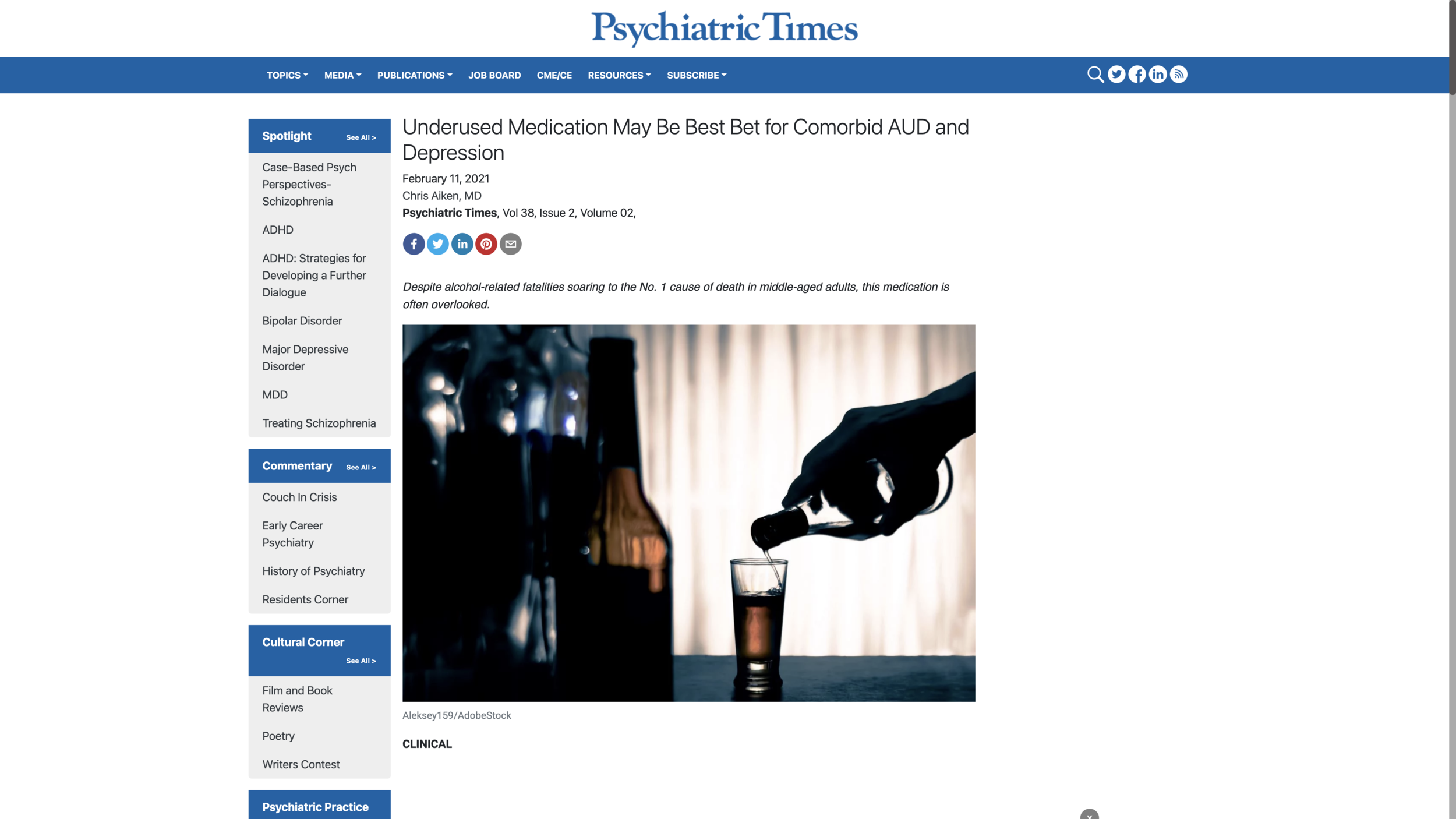Unleashing the Potential of Antabuse
Link to the full text of the article shown above
Link to the Wikipedia article “Disulfiram”
Alcohol abuse is a huge problem. The health benefits of avoiding alcohol entirely are convincingly shown by the beneficial effects of Asian genes that make drinking quite unpleasant, as you can read in “Data on Asian Genes that Discourage Alcohol Consumption Explode the Myth that a Little Alcohol is Good for your Health.” But those who are tempted to drink too much and are not blessed with such a genetic brake on their alcohol consumption can get a similar effect from the drug disulfiram, which goes by the trade name Antabuse.
All the quotations in this post are from Chris Aiken’s February 11, 2021 Psychiatric Times article “Underused Medication May Be Best Bet for Comorbid AUD and Depression” shown above. Here is how disulfiram works to fight alcohol abuse:
Disulfiram induces an immediate hangover reaction when combined with alcohol. It blocks the enzyme that metabolizes acetaldehyde, the toxin responsible for alcohol’s hangover effect.
The odds of being able to escape alcohol abuse are many times higher with the help of disulfiram. Here is a key diagram from “Underused Medication May Be Best Bet for Comorbid AUD and Depression”:
Hangovers are not healthy. So it is not only unpleasant to drink when using disulfiram, it is bad for your health. That wasn’t fully understood in the early days of disulfiram, which tarnished its reputation somewhat. Such alcohol-disulfiram interactions are no longer a real problem:
Deaths from the disulfiram-alcohol (ethanol) interaction have not been reported in recent years, possibly because the dosages used are lower than those used 40 years ago and patients with cardiac disease are now excluded from treatment.
Alcohol abuse and depression often go together. Chris Aiken speculates as follows on why disulfiram helps reduce depression as well as reducing alcohol abuse:
Although these studies cannot explain why disulfiram works well in depression, I will venture a guess from clinical experience. Patients with depression are often unable to take action on the things that are good for them, ie, bathing, eating healthy, and achieving sobriety. Although they want to stop drinking, they struggle with ruminative thoughts and never arrive at an executable plan. Disulfiram halts indecision, relieving them of the struggle.
Many people worry too much about the small- to modest-sized dangers from a treatment and too little about the huge dangers of the disorder treated. Alcohol abuse should be taken very, very seriously. Disulfiram can help.
I also wonder if some people think of alcohol abuse as a character flaw that should be treated with character improvements. Character improvements are something to be pursued in any case, but alcohol abuse is so deadly that chemical help to fight it should also be sought. (Similarly, tobacco is so deadly that chemical help—which is often available—should be sought in quitting smoking as well. Self-discipline is great, but shouldn’t be the only tool one turns to.)
For annotated links to other posts on diet and health, see:

